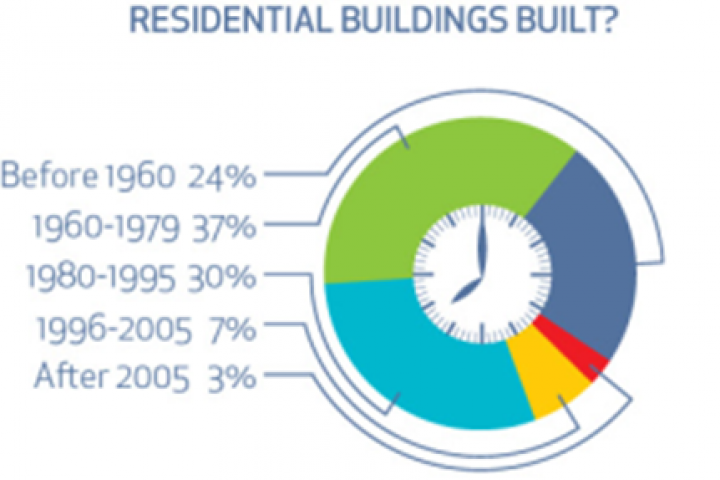Minister backtracks on EU-approved plans for large-scale residential energy efficiency renovation scheme
According to the opinion of Energiaklub it would be an enormous strategic mistake from the government not to support the energy efficient refurbishments of residential buildings from the 2014-2020 EU funds. According to the announcement of János Lázár, Minister of the Prime Minister’s Office: “funds will only be available for governmental buildings in order to reduce the expenses of the state. For energy efficient renovation of residential buildings people can use bank loans.”
During the previous EU programming period, the Hungarian Government often criticized that there were no EU funds available for the renovation of residential buildings. This was the reason why only HUF 25 billion was allocated for supporting energy efficient investments of the citizens.
In the new period starting from 2014, the European Commission made the energy efficient renovation of residential buildings possible from EU funds. In the operational programs submitted to Brussels, the Hungarian Government allocated HUF 450 billion for energy efficient refurbishments – including those of residential buildings. This seems to be changing now, according to the statement of János Lázár.
Residential buildings consume roughly one-third of Hungary’s annual primary energy use (approx. 1000 petajoule). The energy consumption of public institutions is only a fraction of that, for the simple reason that the number of public institutions is very low, only a few thousands, compared to the 2.7 million residential buildings.
It is not a coincidence that the government set a 38 PJ energy reduction for residential buildings until 2020, and only 1.6 PJ for public institutions, in the National Strategy of Buildings accepted this year. In this strategy, the government calculated that it costs a lot less to reduce energy consumption in residential buildings than in public institutions: while it costs an average of HUF 42 billion to save 1 PJ energy in residential buildings, it takes HUF 95 billion in the case of public institutions.
Households have been waiting for the promised but always postponed EU support programmes for years. Based on public surveys, 85% of the Hungarians do not have any kind of savings. This means, that they are not able to finance the renovation from their own resources, even though the investment would pay off later on. Only 11% of the households planning to renovate would take out a loan to pay for the investment.
It is understandable that the government expects from households to contribute to the refurbishment of their homes. At the same time it is a similarly reasonable expectation from the side of the citizens that the government should also support the renovation of this large stock of buildings, as it decreases the energy and import dependency of the country, improves the foreign trade balance and creates tens of thousands of jobs even in the countryside - and in addition, all that would be funded by the EU.






